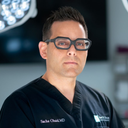Any of the USA implant manufacturers' silicone gel implants from the past decade or so are cohesive and extremely durable--so much so that over that period of time I have placed several thousand implants and have seen a grand total of 5 ruptures. These all (thus far) have been noted in implants manufactured in 2003, 2004, and 2005. Newer implants are even more durable due to manufacturing improvements, and I suspect the rupture rates will be correspondingly lower. In fact, I will be so bold as to say that I believe the vast majority of implant ruptures are not due to manufacturer defect, but to surgeon mishap, such as an inadvertent puncture by a needle during pocket closure, or "adjustment" of the pocket by instrumentation with the implant already in the pocket (i.e.: "blind manipulation"). This is why rupture statistics differ among companies (some allow even non-surgeon physicians to purchase and use implants, presumably with much higher complication rates than ABPS-certified plastic surgeons), and between written data and individual qualified and experienced plastic surgeons.Present-day implants by any of the three USA implant manufacturers are so durable that I throw them as hard as I can on the floor during consultations, and then stomp on them, without damage. Imagine what this would do to a person! That is a pretty graphic demonstration as to implant durability, and why I believe that implant rupture is almost always due to surgeon-related causes, not manufacturer "defect." Of the 5 ruptures, only 1 was a manufacturer defect (patch failure), and this was easily replaced without silicone contamination or previous concern, as this was a request for larger implants and a totally random intra-operative finding.No matter how vigorous the dog's tail slap was, the pain was your breast being "punched," and not your implant being damaged. I would want to examine you for hematoma leading to capsular contracture, or for sign of present capsular rupture leading to implant malposition or herniation, but not implant damage. If everything both looks good and feels good, you should not be concerned. At all. I have had several of my implant patients involved in automobile accidents with seat belt impact to the chest vigorous enough to leave a serious strap bruise, all without damage to implants. I have had one of my patients undergo a(n incorrectly-performed) non-displacement mammogram causing a painful "pop" and immediate bruising of the side of the breast and chest wall. My patient called me in a panic about her "ruptured implant." We scheduled surgery for a couple of days later when she was able to travel to Minneapolis (out of town patient), and I found a perfectly-intact implant and a ruptured capsule with a chunk of blood clotted within the pocket. Rinsed it out and closed, quite happy for her and her implant. She later developed capsular contracture from the bleeding that caused the bruising, and required subsequent re-operation to solve her CC.I tell you all of these anecdotes to emphasize that your surgeon will be interested in checking YOU for injury, not your implant. Would you go for check-up if your breast had just been whacked without an implant being present? I suspect not.MRI is also unnecessary, IMHO, and will give a 21% false positive "implant ruptured" report that could induce an operation that will (almost certainly) lead to finding a perfectly intact implant and costing you $$, recovery and time off, as well as slight risk of complication from the re-op, all for nothing. If you can't tell, I feel strongly about this, based on 30 years of using implants and seeing many generations of them. Older ones may have concerns, but if yours are only several years old, I'd bet you a can of soda (my biggest bet) that everything is fine! Best wishes! Dr. Tholen








